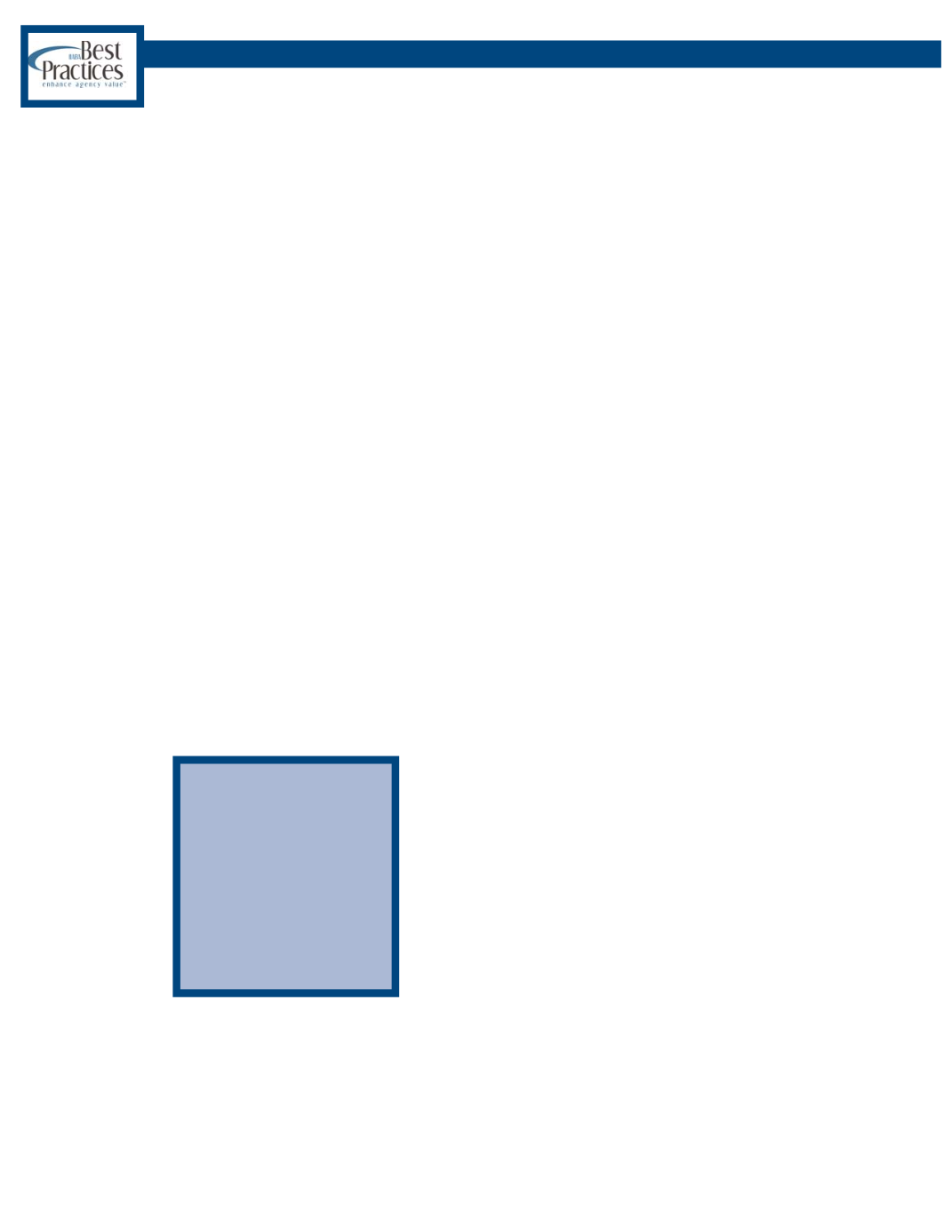

Profitability
The 11 bank-owned agencies also reported higher profitability than their independently owned
peers. Specifically, their average pre-tax profit margin and operating pre-tax profit margin are
24.5% and 15.6%, respectively. The 154 non-bank-owned agencies averaged lower for both prof-
itability metrics at 16.6% and 6.0%, respectively. However, a comparison of pro forma pre-tax
profitability, which is calculated after eliminating discretionary expenses and adjusting owner
compensation, shows the bank-owned agencies with only a slight advantage of 25.4% versus
24.2%.
The profitability advantage for the bank-owned agencies appears to be gained through lower oper-
ating expenses. Operating expenses total 10.6% of net revenues for the bank-owned agencies and
14.4% of net revenues for the non-bank-owned agencies. Presumably, the bank-owned agencies
are leveraging the existing bank infrastructure in order to reduce operating expenses. For exam-
ple, occupancy expense for the bank-owned agencies is substantially lower (2.9% of net revenues
versus 3.7%), as is expense for outside services (0.2% of net revenues versus 0.6%).
Productivity
Productivity, as measured by revenue and spread per employee, is relatively similar for the bank-
owned and non-bank-owned agencies, though the bank-owned agencies average slightly better for
both. The bank-owned agencies reported revenue per employee of $146,490 and compensation
per employee of $83,480, for a spread of $63,010. The non-bank-owned agencies produced com-
parable but slightly less efficient results of $138,036 in revenue per employee and $85,124 in
compensation, for a spread of $52,912. These results appear to reinforce the notion that banks
acquire agencies as a platform for growth and, consequently, are generally not eliminating posi-
tions or modifying compensation structures.
Though the disciplines of statistical analysis suggest we be cau-
tious in concluding too much from the observations above, it
appears notable that these bank-owned agencies are producing
exceptional results in the areas of growth, profitability and pro-
ductivity. We can anticipate that leading banks in insurance will
continue to pursue leading agencies. And they will continue to
bring to bear their considerable resources to help those agencies
become even more successful.
2004 BEST PRACTICES STUDY - APPENDIX
176
These results appear to
reinforce the notion that
banks acquire agencies
as a platform for growth
and, consequently, are
generally not eliminating
positions or modifying
compensation struc-
tures.









